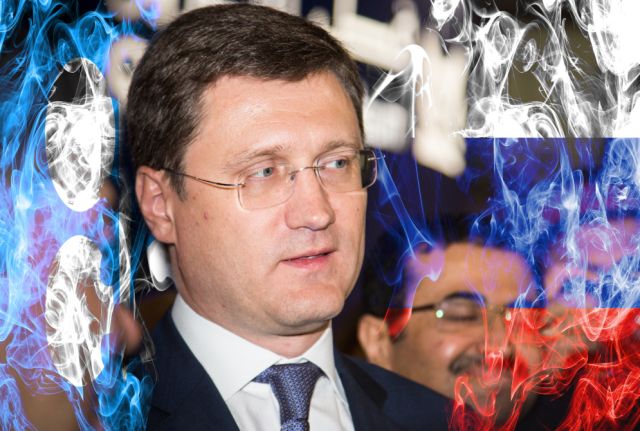
Russian Energy Minister Alexander Novak (Source: magicinfoto / Shutterstock.com)
An OPEC+ technical panel has recommended a provisional cut in oil output of 600,000 barrels per day (bbl/d) in response to the coronavirus' impact on energy demand as it awaits Russia's final position on the proposal, three sources said.
The Joint Technical Committee (JTC) is not a decision-making body but does advise OPEC and allies led by Russia, a grouping known as OPEC+.
The panel has also recommended extending the current output cuts of 2.1 million bbl/d until the end of 2020, two sources said.
RELATED:
Frac Spread: Crude, Gas Prices Buckling Under Pressure
OPEC+ is currently cutting output by 1.7 million bbl/d, with Saudi Arabia pledging to voluntarily hold its output to 400,000 beneath its quota, bringing the total effective cuts to 2.1 million bbl/d, or about 2% of global supply. The current OPEC+ agreement expires in March.
OPEC and its allies led by Russia produce more than 40% of global oil and the new proposed cut would constitute around 0.6% of global supply.
OPEC+ ministers have not decided on further action, but the recommendation on Feb. 6 by all the members of the JTC, which includes Saudi Arabia and Russia, would signal progress towards a decision.
"The recommendation is for a cut of 600,000 bbl/d. Russia has asked for more time for consultations," one of the sources said.
Another OPEC source said the proposed output cut of 600,000 bbl/d, if agreed by all members, will start immediately and continue until June.
"The 600,000 bbl/d has taken into consideration the expected return of Libya oil production and all scenarios for oil demand growth," the second source said, adding that the proposed cut was enough to counter the expected drop in oil demand due to the coronavirus.
The OPEC+ ministers have yet to decide on whether to bring forward their upcoming policy meeting to February from March 5-6, the sources said.
The JTC panel extended its meeting into a third day on Feb. 6 after Russia voiced its opposition to a deeper supply cut and was instead suggesting an extension of current cuts.
In previous years, Russia has regularly signaled opposition to OPEC before ultimately agreeing on policy during formal meetings.
Oil prices have fallen by more than $11 a barrel this year to $55, alarming producers.
Saudi Arabia, OPEC's de facto leader, and other OPEC members are worried that the continued spread of the virus could hit oil demand and prices further, the sources said.
OPEC sources said the meeting was unlikely to be brought forward unless there was general agreement on the need to reduce output further.
While OPEC countries such as Iraq, OPEC's second-largest producer, have voiced support for any agreement that would stabilize the market, Russian Energy Minister Alexander Novak said Feb. 4 he could not say for sure whether it was time to tighten output further.
The economic slowdown resulting from the virus outbreak is expected to reduce 2020 global demand growth by 300,000-500,000 bbl/d, or roughly 0.5%, BP Plc CFO Brian Gilvary said Feb. 4.
Brent crude futures lost 35 cents to settle at $54.93 a barrel. U.S. WTI crude futures rose 20 cents to settle at $50.95 a barrel.
Recommended Reading
NGL Growth Leads Enterprise Product Partners to Strong Fourth Quarter
2024-02-02 - Enterprise Product Partners executives are still waiting to receive final federal approval to go ahead with the company’s Sea Port Terminal Project.
Enbridge Advances Expansion of Permian’s Gray Oak Pipeline
2024-02-13 - In its fourth-quarter earnings call, Enbridge also said the Mainline pipeline system tolling agreement is awaiting regulatory approval from a Canadian regulatory agency.
Mitsubishi Makes Investment in MidOcean Energy LNG
2024-04-02 - MidOcean said Mitsubishi’s investment will help push a competitive long-term LNG growth platform for the company.
Magnolia Oil & Gas Hikes Quarterly Cash Dividend by 13%
2024-02-05 - Magnolia’s dividend will rise 13% to $0.13 per share, the company said.
Aramco Reports Second Highest Net Income for 2023
2024-03-15 - The year-on-year decline was due to lower crude oil prices and volumes sold and lower refining and chemicals margins.





